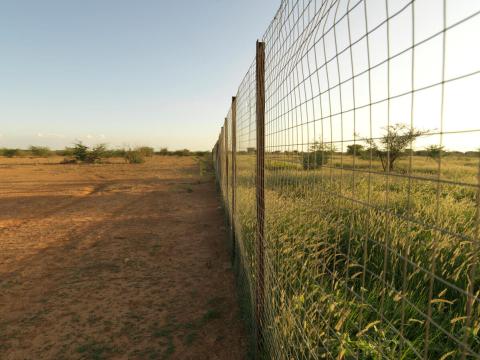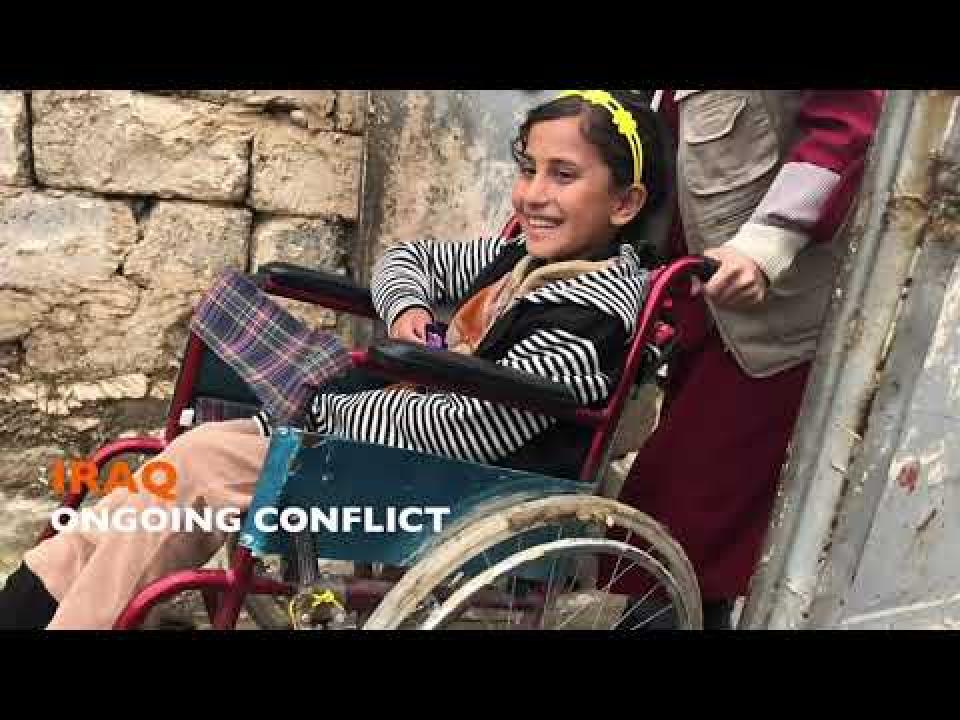
Farmer Managed Natural Regeneration – Climate action that’s Fit for Fragile contexts
The World Bank has identified “climate adaptation and mitigation” and “conflict and fragility” as two of its eight global challenges. In preparation for the World Bank Fragility Forum in Washington, DC, Christine Lindell highlights World Vision’s work in FCV with an innovative approach at the intersection of these two challenges: Farmer Managed Natural Regeneration.
Last November, the world came together at the 2023 UN Climate Change Conference, COP28, and called for bolder climate action in global most fragile contexts. Though communities in fragile contexts are among the most affected by climate change, they receive virtually no support from climate finance funds: According to UNDP, $2.10 is allocated per person in extremely fragile contexts, compared to $113.80 per person in non-fragile countries.
In COP28’s groundbreaking Declaration on Climate, Relief, Recovery and Peace, donors clearly committed to increasing climate funding to fragile contexts. But for the international aid and climate communities, what’s less clear is what this ambition will look like on the ground – in some of the world’s most notoriously difficult operating environments. World Vision has an answer.
“With FMNR we have a solution that sequesters carbon at the same time that it empowers communities and builds local resilience. Moreover, we have the hard evidence that it works in fragile contexts,” Christine Lindell, Conflict and Fragility Technical Advisor, WVAustralia.
Farmer Managed Natural Regeneration (FMNR) is a climate adaptation and mitigation approach with a proven track record in fragile contexts. Developed in the midst of Niger’s catastrophic 1983 drought and famine, FMNR has subsequently been used to restore over six million hectares of degraded land in that country alone – an impact that’s visible from space. In more recent years, World Vision has also restored land with FMNR in 14 other fragile or conflict-affected contexts, with striking results.
Results:
- 97,592 hectares restored in Mali. (EU Regreening Africa)
- 91.6% of respondents said quality of nearby grazing land had improved in the past year, vs. 43.9% in control site. (ANCP Togdheer, Somaliland)
- 78.3% of respondents at endline perceived community structures for conflict resolution as “somewhat” or “very” effective. (DFID BRACE II South Sudan)
- 18 million hectares of FMNR-restored land worldwide (estimated by WVAustralia).
FMNR is a game-changing low-cost solution to landscape degradation. Communities use tools they already have to regenerate existing stumps and seedlings, rapidly achieving major regrowth. The simplicity belies the power of this approach. Independent research has repeatedly identified FMNR as one of the most effective ways to achieve climate mitigation and adaptation.[1] Regenerated landscapes lock away carbon, but also quickly begin to generate significant and urgently needed benefits for fragile context communities: increasing soil fertility and replenishing water tables to counteract recurring drought and famine; restoring ecosystems to insulate against frequent natural disasters.
Not only a nature-based solution, FMNR is also a community-driven approach. Each farmer makes their own decision to apply the FMNR technique, on the basis of the benefits they expect to see for their land. Each community harnesses local knowledge together with scientific data to plot a course for their shared environment. This focus on local ownership and governance leads to one of the most crucial impacts of FMNR in fragile contexts – conflict prevention.
Climate change is a risk multiplier for conflict, and World Vision’s research shows that communities are already clearly seeing the impact. FMNR helps prevent conflict over communal resources in two ways: firstly, by “growing the pie” or increasing the abundance of the shared resource itself; and secondly by “sharing it fairly”. In these projects, communities often take a major focus on reinvigorating communal resource management systems and renegotiating rules of use so that they are inclusive and fair as well as sustainable. A system that everybody – farmers and pastoralists, youth and elders, men and women, government and traditional leaders – is involved in creating and managing a system that prevents conflict.
FMNR doesn’t just directly address the climate hazards of greatest concern for fragile contexts, it’s also well-suited for the challenging operating conditions. It’s inexpensive and simple – heavy equipment and squads of international experts don’t need to be shipped to hard-to-reach locations. Regrown trees are robust, unlikely to die if community members are unable to tend them for a time due to insecurity. And it scales even without the benefit of state support, as farmers see the success their neighbours have had and replicate it for themselves.
To meet the challenge of climate change in fragile contexts, we can’t use the same playbook that climate finance has taken in stable contexts. With FMNR we have a ground-tested solution that sequesters carbon at the same time that it empowers communities and builds local resilience. Let’s not hesitate to put it into action.
Christine Lindell is World Vision Australia’s Conflict and Fragility Technical Advisor. She can be contacted during the World Bank Fragility Forum from 27-29 February at Whatsapp: +61 484 650 500 and via email at Christine.lindell@worldvision.com.au.

